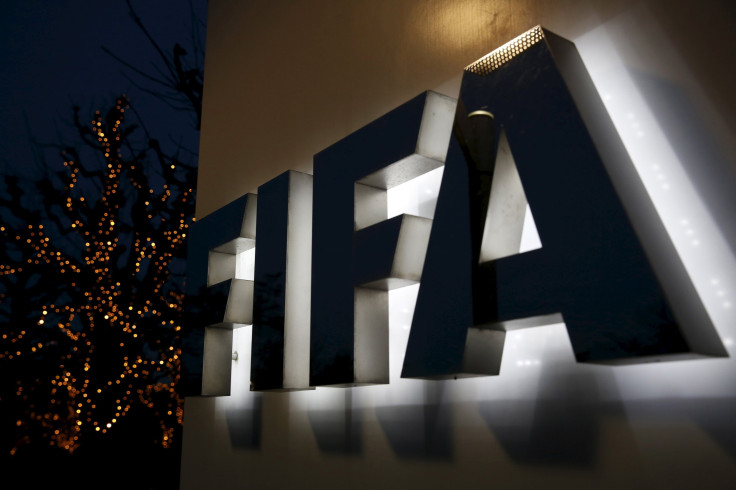FIFA 2016 Presidential Election Explained: Candidate Bios, Start Time, Voting Process And Odds

FIFA, the governing body of international soccer, was scheduled to choose its replacement for banned boss Sepp Blatter when it votes Friday for a new president. The 2016 FIFA extraordinary Congress is a seminal moment for the organization, which has been plagued with corruption for years and last year saw two rounds of sweeping indictments.
The hope is that with a new president comes change for FIFA. That process begins Friday. Listed below are some of the key facts about the election.
What Time Does It Start?
The actual voting is expected to start between 8 a.m. and 8:30 a.m. EST. But these events often come with heavy delays, so it's possible the voting could start later. FIFA officials are expected to begin arriving at the Zurich Hallenstadion entertainment venue in the wee hours of the morning eastern time.
Candidates And Their Key Talking Points
— Gianni Infantino, 45, Union of European Football Associations (UEFA) general secretary
Infantino has proposed instituting term limits for senior FIFA officials and expanding the World Cup to 40 nations from 32. He has proven popular with European nations, receiving endorsements from many of the soccer associations, including England's.
— Sheikh Salman bin Ibrahim al-Khalifa, 50, Asian Football Confederation president and FIFA vice president
Sheikh Salman has proposed splitting FIFA into two separate entities, one of which would be commercial and the other for soccer operations. He has also suggested creating an anti-corruption agency. Allegations of human rights abuses have dogged Salman, a member of the ruling family of Bahrain, in the jailing and torture of Bahraini athletes who participated in peaceful pro-democracy protests during the 2011 Arab Spring.
— Prince Ali Bin Al Hussein, 40, president of Jordan Football Association
Prince Ali, the son of King Hussein of Jordan, was the runner-up to Blatter in the 2015 election. He has proposed an increased focus on the women's game, the creation of a "President's Board" composed by leaders from each FIFA region and upping the World Cup to 36 teams from 32.
— Jerome Champagne, 57, former FIFA executive and advisor to Blatter
Champagne has emphasized that he would stress the inclusion of national associations in FIFA's decision-making process and would invest in poorer soccer nations.
— Tokyo Sexwale, 62, South African businessman who served on the 2010 World Cup organizing committee
Sexwale has proposed an increased focus on developing the game worldwide, including all soccer nations and not just the typical power players. He has also suggested creating an 11-person advisory board aimed at regaining trust in FIFA. But the former political prisoner has been mired in controversy over his diamond mining business, including his attempts to take over mining in Guinea, according to the Evening Standard.
How Does the Voting Work?
The 207 eligible member states of FIFA will be invited to vote, in alphabetical order. Each association gets a single vote. To win in the first round of voting, a candidate must receive more than two-thirds of the votes, which is not expected to happen.
If no winner emerges in the first round of voting, a candidate has to earn a simple majority to win in the second round of voting. Should there be a need for a third round, the candidate who garnered the fewest votes would be eliminated.
Who Is Expected to Win?
Salman and Infantino are apparently locked in a two-horse race. The Confederation of African Football and the Asian Football Confederation have thrown their support behind Salman, while Infantino has secured much of UEFA and the Confederation of North, Central America and Caribbean Association Football.
Website Bet Victor has Salman as the favorite (4/9), followed by Infantino (15/8), Ali (12/1), Sexwale (50/1) and Champagne (66/1).
© Copyright IBTimes 2025. All rights reserved.






















